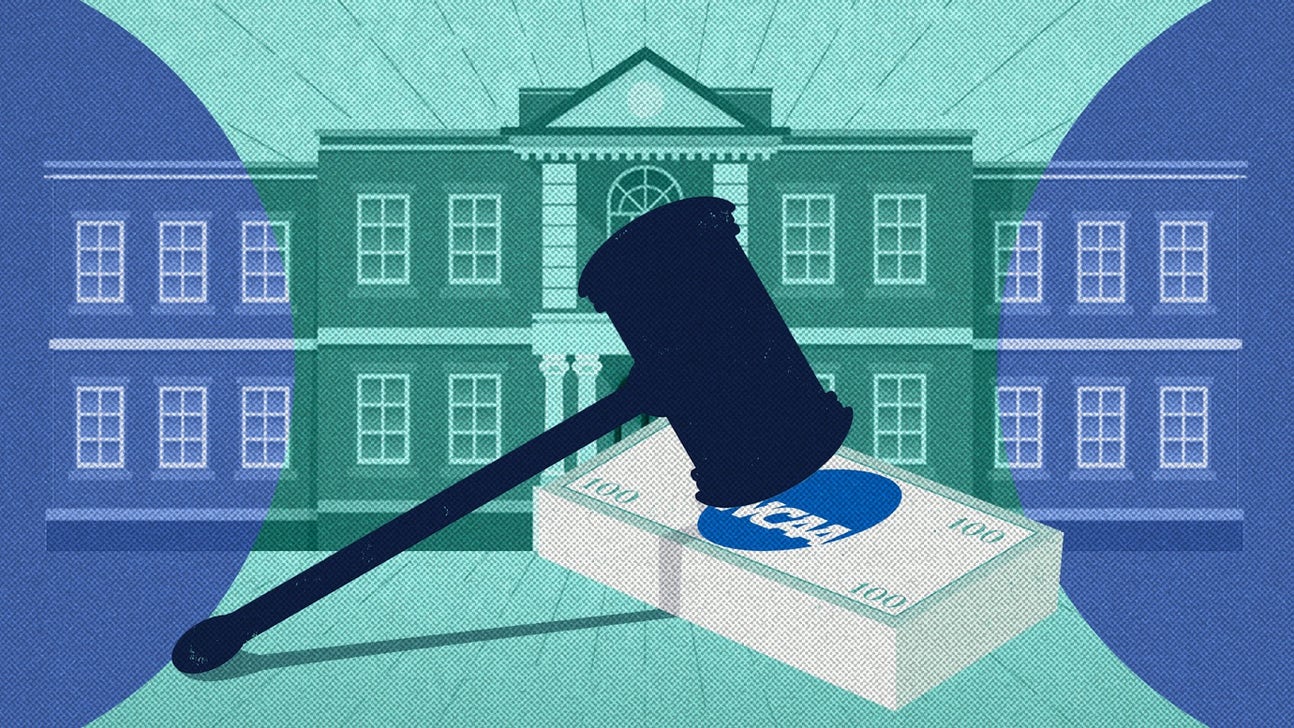
Supreme Court sends clear message to NCAA about athlete compensation
By RJ Young
FOX Sports College Football Writer
The U.S. Supreme Court's nine justices outchea actin’ like reasonable people Monday has the NCAA shook.
And the Supremes did this simply by running up a 9-0 ruling in Alston v. NCAA like it was Alabama vs. Directional State.
This decision means the NCAA can no longer put limits on educational-related benefits for athletes that are accessible to regular college students, such as paid internships, laptops, iPads, etc.
The ruling also means the NCAA can't limit what schools can do to pad their educational-related benefits to better recruit players. But conferences still can enforce limits, if they choose.
An example of what that might look like is the Big 12 severely curtailing the number of Prop. 48 players a school could have among its student-athlete population in 1996. The decision devastated Nebraska football recruiting.
What the Alston v. NCAA decision does not implement is schools paying salaries to players.
The case was brought by former West Virginia running back Shawn Alston and other former players. Their attorneys claimed that the NCAA's limit on educational-related benefits is unfair.
The NCAA's attorneys defended it by claiming that the rules disallowing salaries and limiting educational benefits to the cost of attendance respective to member schools facilitated amateurism.
However, the NCAA is at work — along with more than a dozen state legislatures and U.S. Congress — to frame name, image and likeness rules.
NIL is what most contemporary athletes stand to gain the most money from, and it's where most of their focus will be.
However, Justice Brett Kavanaugh left open a door for legal challenges at a later date that will likely topple the NCAA's rules against schools paying players directly.
In the Court's 9-0 decision for the players in Alston v. NCAA, Kavanaugh wrote:
"To be sure, the NCAA and its member colleges maintain important traditions that have become part of the fabric of America — game days in Tuscaloosa and South Bend; the packed gyms in Storrs and Durham; the women’s and men’s lacrosse championships on Memorial Day weekend; track and field meets in Eugene; the spring softball and baseball World Series in Oklahoma City and Omaha; the list goes on.
"But those traditions alone cannot justify the NCAA’s decision to build a massive money-raising enterprise on the backs of student athletes who are not fairly compensated.
"Nowhere else in America can businesses get away with agreeing not to pay their workers a fair-market rate on the theory that their product is defined by not paying their workers a fair-market rate.
"And under ordinary principles of antitrust law, it is not evident why college sports should be any different. The NCAA is not above the law."
Nor should it be.
RJ Young is a national college football writer and analyst for FOX Sports and the host of the podcast "The No. 1 Ranked Show with RJ Young." Follow him on Twitter at @RJ_Young, and subscribe to "The RJ Young Show" on YouTube. He is not on a StepMill.










